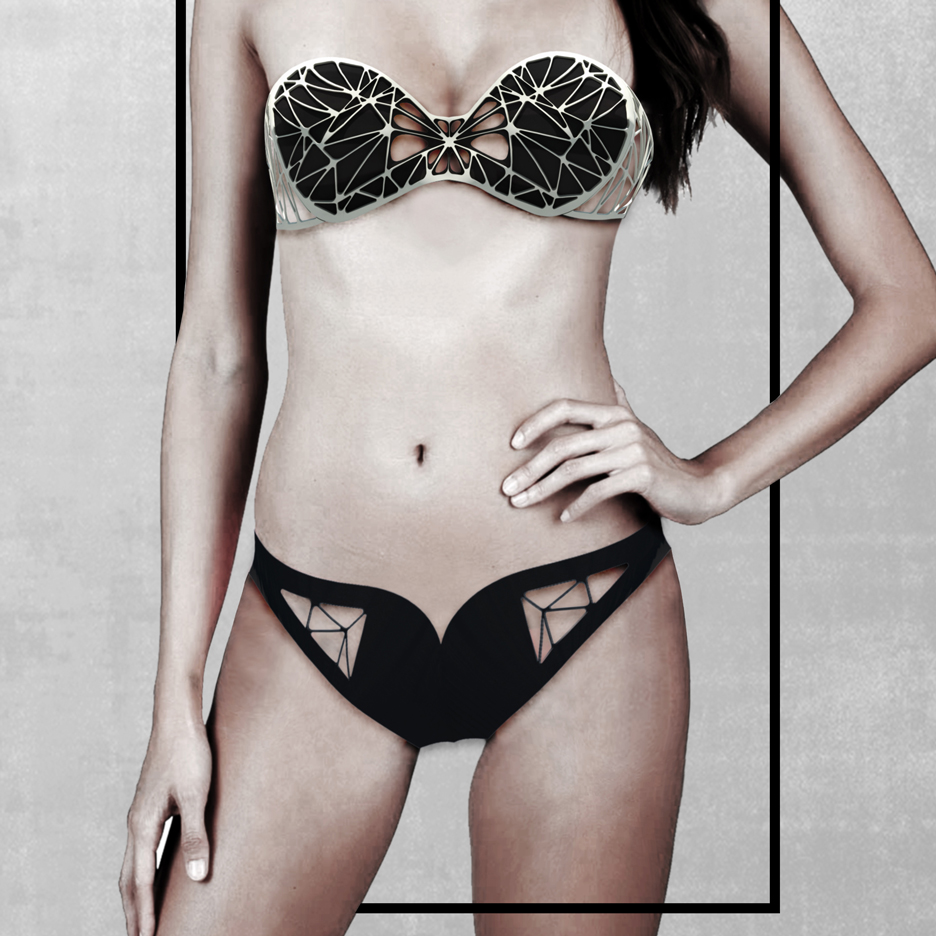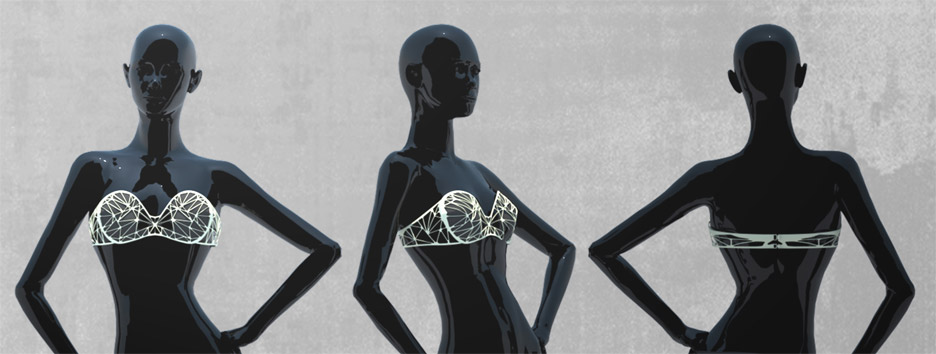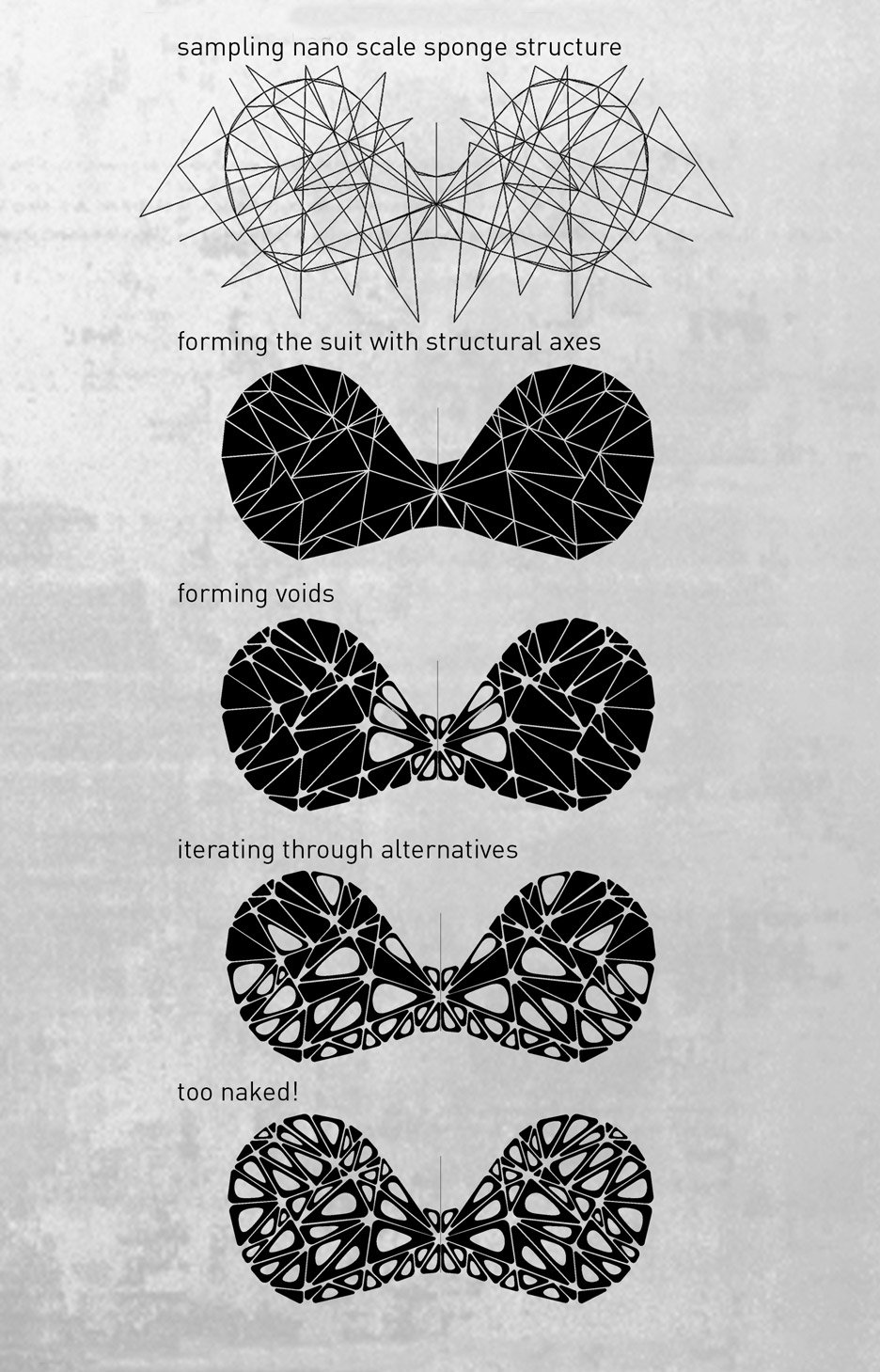Sponge bikini is designed to absorb pollution from the sea
This bikini is made from a sponge-like material that repels water but absorbs oils, designed to help filter impurities from water and turn swimming to an "eco-friendly activity".

University of California engineering professors Mihri Ozkan and Cengiz Ozkan made the porous material called Sponge from a network of nanocarbons originating from sugar.
The lightweight material has a surface area of 823.77 square meters per gram and can absorb up to 25 times its own weight, depending on the density of the substance.

New York architecture and design studio Eray Carbajo used the material to develop the Sponge Suit bikini for Reshape15, a wearable technology competition in which it was awarded first place for its pollution-absorbing qualities.
"Sponge Suit is an environmental proactive swimwear that cleans seas as we swim," said studio co-founder Inanc Eray. "It aims to transform the swimming experience into an eco-friendly activity."

"By absorbing all oil-based contaminants and repelling water, the material is a powerful tool for water decontamination," added Eray.
The Sponge Suit is built from two components – a net-like exterior shell made from 3D-printed plastic that flexes to fit the body and a filler made from Sponge.
The design is intended to represent the porous, mesh-like structure of the material while also "pushing the limits in translucent swimwear design."

The Sponge portion of the design is intended to collect impurities from the water as the wearer swims and to retain them. Absorbed substances can be released from the material by heating it to temperatures of 1,000 degrees celsius, when it can be filtered of contaminants and reshaped for reuse.
"In the near future it is not hard to imagine facilities, much like dry cleaning locations, that collect the Sponge Suit's inner Sponge fillers to recycle to separate any contaminants," said the team.
Images courtesy Eray Carbajo.
Project credits:
Technology team: Mihri Ozkan, Cengiz Ozkan
Design: Eray Carbajo
Design team: Inanc Eray, Gonzalo Carbajo, Pinar Guvenc, Marco Mattia Cristofori